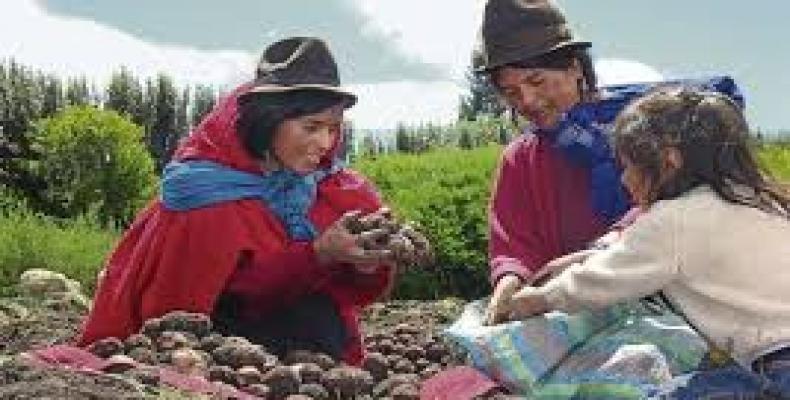La Paz, Dec. 29 ( RHC-AGENCIES) -- The Bolivian government is actively promoting initiatives to ensure food security throughout the country.
President of the Bolivian Chamber of Lowland Agriculture Julio Roda declared that Bolivia will be able to achieve complete food sovereignty over the next five years.
“Within five years, Bolivia will eliminate its food dependency on other countries and will be a truly sovereign country,” Roda told local television outlets.
According to the Vice Ministry of Rural Development, the total land area of crops under production grew this year from 2.5 to 3.5 million hectares, which represents a 40 percent increase from 2013.
However, Roda noted that crop production has been limited in recent years largely due to intense rains and flooding.
According to a 2013 report published by the Bolivian Ministry of Defense, nearly 247,000 hectares of land have been squandered do to abnormal weather patters.
Roda also stated that in order to overcome climate change-related challenges, farmers must receive the continued support and assistance from the national government.
One of the innovative ways in which the Bolivian government has tried to mitigate the impacts of climate change particularly as it relates to agriculture and price volatility was by creating the National Agricultural Insurance Institute (INSA), which is responsible for notifying banks to grant financial assistance to potato, barley, corn, quinoa and wheat producers whose crops have been damaged because of climate change.
Between 2012-2013 the government provided agricultural insurance policies that have assisted more than 50,000 farmers in 63 municipalities.
Farmers who have been affected by frost, flooding or droughts also receive financial compensation of up to USD$434 to cover the costs of the crops that were affected. A given farmer receives USD$144 bolivianos per hectare.
These initiatives form part of Bolivia's National Development Plan which outlines a series of policies that address agrarian issues within the country, including support for food sovereignty agencies that provide technical assistance, training and policy building to small-scale farmers.
While agriculture accounts for only 13 percent of Bolivia’s total gross domestic product, 40 percent of Bolivia’s work force is engaged in agricultural activities.


